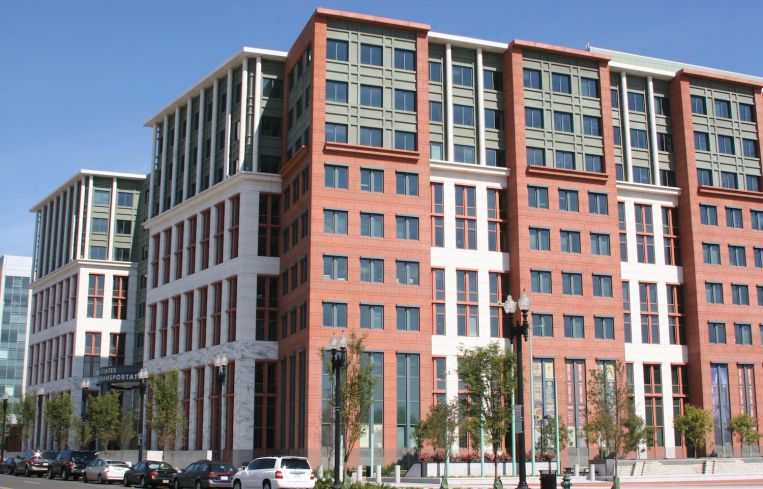The GSA Is a Nimble Property Manager That Is Not Talking to Joe Biden
By Keith Loria November 16, 2020 4:21 pm
reprints
The General Services Administration, an otherwise behind-the-scenes independent government agency charged with managing federal property, has been in the news quite a bit recently due to the apparent refusal of its director, Trump appointee Emily Murphy, to ascertain the election of Joe Biden as president, and thereby set in motion key elements of Biden’s transition to the West Wing (which, incidentally, the GSA helps manage).
The radio silence comes as 325 leases representing some 22.4 million square feet of federally occupied office space are set to expire in the next three years. Not that the GSA is planning to talk to President-elect Biden’s staff about it any time soon.
“GSA does not speculate, and we remain focused on our mission to deliver value and savings in real estate, acquisition, technology and other mission-support services across government, and our strategic goals, including to save taxpayer money through better management of federal real estate,” a spokesperson told Commercial Observer in a response to a question about what a Biden administration might mean for its operations.
What is known right now about the GSA’s portfolio management was set in motion well before the election. The GSA’s footprint — and, therefore, the federal government’s — is expected to decrease due to an ongoing focus on efficiency and space contraction. Right now, through its Public Buildings Service (PBS), GSA provides workspace and related services for more than 100 agencies servicing more than one million workers.
“GSA’s leasing activity continues to be sizable and essential in 2020,” the spokesperson said. “GSA has always prioritized long-term planning and concentration on active lease procurements. Through FY24, the national capital region will see the expiration of 325 leases representing approximately 22.4 million rentable square feet for approximately $908 million.”
One of its most notable deals of 2020 was the $760 million purchase of the U.S. Department of Transportation’s headquarters located at 1200 New Jersey Avenue SE in D.C.’s Yards/Southeast Federal Center neighborhood in March, more than 19 months ahead of schedule.
The purchase “put DOT’s headquarters in federally owned space, making it the final Cabinet-level agency to move its headquarters from leased space to owned space,” according to a GSA statement from October. The building consists of more than 1.9 million gross square feet, housing nearly 5,500 DOT personnel.
Other notable deals included arranging a new 15-year lease for the Federal Communications Commission’s headquarters at 45 L Street NE in D.C. for 473,000 rentable square feet; and completing a 15-year, 290,000-square-foot lease for the Department of Education at Potomac Center at 550 12th Street SW.
Also, prior to the pandemic, GSA embraced telework and alternative workplace strategies to ensure continuity of operations. These practices uniquely positioned the agency in adapting to an almost-completely virtual workforce, the spokesperson said. For instance, early on, GSA invested in the sort of IT infrastructure that makes virtual collaboration easier.
“Regarding ongoing lease and construction projects, GSA consistently partners with our contractors to successfully navigate through unexpected delays due to work stoppage or delay, especially in the earlier phases of the pandemic,” the spokesperson said.
During the pandemic, GSA has experienced an uptick in customer requests for warehouse and storage space, many related to personal protective equipment and alcohol-based sanitizers. As an example, GSA successfully backfilled approximately 190,000 square feet of storage space in Franconia, Va., in support of storage needs for tenant agencies.
In 2021, GSA’s property management goals will remain the same, with the agency saying it will seek further opportunities to consolidate its real estate through long-term planning. All of these considerations could result in less square footage.
“In the future,” the spokesperson said, “GSA plans to continue to support national portfolio goals of preserving/improving financial progress, [and], where appropriate, consolidating expensive leases into vacant federal space, disposing of under-utilized assets, reducing liabilities and operating costs, and providing safe and functional space in good condition within the overall cost structure of the PBS fiscal environment.”
Update: This story originally misattributed source material. This has been corrected. We apologize for the error.




